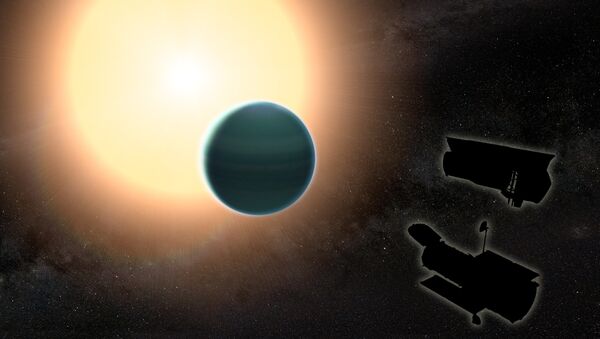The planet is hotter than Mercury with a temperature of 1,832 degrees Fahrenheit yet has its own atmosphere, a study detailing the planet published Monday in the journal Monthly Notices of the Royal Astronomical Society reads. According to the study, its mass is 20 Earth masses and whips around its star in a full orbit every 1.3 days.
READ MORE: Mars 'Actually the Only Planet' Humans Can Go to Escape Earth, Professor Claims
It's the first exoplanet of its kind to be found in the Neptunian Desert — a region close to stars where Neptune-sized planets can't be found. These planets are blasted with radiation from stars, so the planets can't maintain their gaseous atmosphere.
They evaporate and leave only a rocky core behind, yet NGTS-4b still has its gaseous atmosphere. Astronomers believe that either the planet moved into this region within the last million years, or the planet itself was once bigger and the atmosphere is in the process of evaporating.
"This planet must be tough — it is right in the zone where we expected Neptune-sized planets could not survive," Richard West, study author and principal research fellow from the University of Warwick's department of physics, said in a statement. "It is truly remarkable that we found a transiting planet via a star dimming by less than 0.2% — this has never been done before by telescopes on the ground, and it was great to find after working on this project for a year."
According to West, the next step in their research is scouring out data to see if they can see any more planets in the Neptune Desert to determine whether “the desert is greener than was once thought.”

